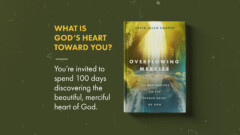Of all the questions that find their way into my inbox, I don’t know that any topic receives more attention than reading. I get a lot of questions from people asking if I’ve read or can recommend certain titles, but also a lot of questions just about reading–how to do it and how to do it more. A couple of days ago, a friend and long-time reader of this site (one of this site’s very first readers, in fact) asked me a few questions about my “excessive reading”–why and how I read and asked if I would address these questions in an article. Having nothing better to write about today, I thought I would do just that. His questions will be in italics and will be followed by my replies. I hope you are able to find this interesting and perhaps even helpful.
I don’t really know how much I read. I suppose it would probably amount to roughly two to three books per week when averaged over the course of a year. By the end of the calendar year I typically find myself burning out a little bit and may not pick up a book for even a few weeks at a time. I write reviews of the majority of the books I read, though there are some I choose not to review. Sometimes I simply do not understand a book enough to adequately review it or sometimes I can think of nothing particularly interesting to say about it. Some books I do not review because I doubt that anyone else would be interested in those titles. I do most of my reading in the morning and the evening. After I wake up and spend some time in personal devotions, I either hit the couch or my exercise bike and try to read for half an hour to an hour. In the evenings I tend to open up a book after I’ve put the children to bed and try to get in an hour or two of good reading.
Do you feel that your foundational convictions have been changed any or much by your reading? Do you think you have become more relaxed on certain doctrines than you once were or more dogmatic?
I do not think that my foundational convictions have changed much by reading, if by foundational convictions we mean the theology that lies closest to the gospel. I would certainly say that much of that theology has been clarified and strengthened in my mind as I’ve come to understand things better, but I have not had any huge epiphanies where I’ve laid aside any foundational theology. I am reasonably certain that my foundational theology is largely biblical. It is not nearly as deep or as solidly-formed as I might like, but I do believe it is biblical and is simply the doctrine that has been handed down to me as a person who grew up in sound churches.
To answer the second part of this question, there are some doctrines about which I’ve become more relaxed and others about which I’ve become more dogmatic. I’m not sure how much this owes to my reading and how much it owes to my times of Bible study, research and writing. But I’ve definitely come to see that there are some areas where I need to relax a little bit and to rejoice that people are following their biblically-informed consciences; there are some areas that I’ve found just do not merit a great deal of attention. People who have read this site for a long time will probably be able to see a difference between what I was writing in 2004 and what I’m writing now. The flavor has changed, the tone has changed, and I believe a lot of that is because of what I’ve learned through the books I’ve read. At the same time, I’ve learned more about the “hills to die on” and am more dogmatic than ever about the doctrines that lie at the heart of the faith.
My father-in-law once wrote a paper, when he was working on his MDiv., on the topic of “Wine in the Bible”. He came to the conclusion that every instance of the word “wine” in the Bible referred to non-fermented grape juice and insisted that total abstinence was the only Biblical position a Christian should take. I have a book by Kenneth Gentry entitled “The Christian and Alcoholic Beverages” that presents a different view. My father-in-law based his convictions on books that he had read and he refused to read anything that presented another position. I’m using this example to ask this: How much should we read of alternate points of view? Is it right to simply seek those books that present what we already believe in or should we read other works? Should we approach these books with an “Open Mind” or have our mind made up?
I believe there is great value in reading books that may not align with what a person already believes. Of course one rarely knows whether he will agree with a book until he has read it, but usually by looking at endorsements and researching the author we can have a pretty good idea of what an author will teach. I make a point of reading books I am quite certainly I will disagree with. I do this for several reasons. First, I think my convictions are strengthened when I read alternative points of view. In fact, sometimes reading alternative points of view really helps me understand what I believe in a way I did not before. There’s nothing like reading that penal substitutionary atonement is “cosmic child abuse” to make me sharpen my understanding of that doctrine. Second, I believe it is important to keep growing and to keep sharpening my beliefs. I am under no illusion that all I believe is entirely correct, so I am eager to read how other people interpret Scripture so I can test it and see if what I believe does adhere to the Word of God. And finally, I think it is important to know what other people believe.The books that I tend to agree with are books that represent the beliefs of only a small percentage of Christians and only the tiniest fraction of humanity. If I want to understand what others believe and to understand why they believe these things, I’m going to need to read the books they are reading.
I should note that, while all reading requires discernment, reading books that come from a theological perspective far different from my own requires an extra measure. I believe we should major on good books, but do not feel there is anything wrong with minoring on not-so-good books.
And, if you’re interested, I disagree with your father-in-law’s conclusion.
How much of a book do think you retain? Are they like episodes of “Little House on the Prairie?” You remember seeing them and you remember being moved by them but you can’t remember a single one of them now!
The amount I retain varies a great deal from book-to-book. If I am reading a book out of desire, because it is a book whose subject matter greatly interests me, I will tend to enjoy reading it more and will tend to remember more. When the book is one I am reading more out of necessity, feeling that this is a title that needs to be reviewed for one reason or another, I am less likely to remember a lot about it. I find reading with pen and pencil in hand and writing a review are both great ways of reinforcing what the book teaches and helping me file it away in my mind. I can always return to the review to refresh my memory.
I should say that my goal in reading a book is not necessarily to remember everything. I’m quite aware that I’m no Al Mohler and work within the limitations of my mind and memory. My goals are more modest and probably more realistic for someone who can only just manage to remember my own first name most days without first having to read the label on my underwear. I often read books in order to know what that book contains so that if I need to focus on a particular area, I can return to it as a resource. While I may not often remember the complete structure and content of a book, I’ll often remember the more important points within the book and can often quickly flip to the part of the book I want to reference, even months later. For some reason my brain often works in such a way that I can remember the place on the page that I read something. Thus I can skim a book looking only at the bottom right corners or the odd pages, knowing that I saw something down there.
I’ll shamefully admit that there are a few books (a very few) that I’ve noticed in my list of reviews of which I have no memory whatsoever. I’ve apparently read and reviewed them, but remember absolutely nothing of them. But this is definitely the exception far more than the rule.
Is reading a Hobby, a Pacifier, both or neither?
I still read primarily for my own benefit. It sounds selfish, I’m sure, but I tend to read mostly because I know there is so much to learn and I’m eager to learn it. Just last night my wife said to me (and not in a bad way), “You’re one of those people who always feels you need to improve yourself. No matter what you learn, you think you need to learn more.” And I guess that’s about it. The more I learn, the more I see that I need to still learn. This is not a burden to me, but a challenge. Reading and learning is a joy. It is a hobby of sorts and perhaps even a bit of a calling. I enjoy it more than I enjoy most other things I could do with the time. I enjoy the process of reading and love to see in my life the benefits of reading good books.
As I’ve become a book reviewer I’ve also had to begin reading books simply because they need to be reviewed. This has stretched me and has introduced me to some great books I might otherwise have overlooked. But it has also led me to some books that were terribly boring and which I did not enjoy at all. There are always a few books on my shelf that are “need to read” books. Some of these have been pleasurable, but some have been a fight from cover-to-cover. For some reason I enjoyed reading Richard Dawkins’ The God Delusion but utterly despised reading Christopher Hitchens’ God is Not Great. They are similar in their assumptions and similar in what they teach, but one was a chore while the other was a strange pleasure of sorts.
What is your ultimate aim in reading so much?
I suppose I’ve touched on this already. But my ultimate aim in reading is to bring glory to God. I do this first by delighting in reading–a gift from God. I do this also by reading good books and applying to my life what I’ve learned. And I try to do this as well by making other people aware of good books. This is an unexpected ministry God has given me and one I take seriously. I know that most people do not have the time to read as many books as I do, and neither do they have interest in doing so. So I make it a point to read a lot of books so I can recommend to other people a handful of books they may like to read. If a person is only going to read three or four books a year, I’d be delighted if he read my reviews and chose four good, solid, biblical books as the ones he is going to read that year. I am happy to do the screening work and to serve as a filter, separating the mountains of chaff from the few kernels of wheat.
I find that as I read a lot my praise becomes more sparse, but the praise I do give out becomes more meaningful. After all, when I had read just two books, I had only one way of seeing them–one was better than the other. As I’ve read more and more, the relationships have compounded and I become more and more difficult to impress. So now when I do come across a book that blows my socks off, I find that my recommendations mean more as they are made in the light of hundreds of other “competitors.” I believe that a positive review today means more than a positive review three or four years ago. And well it should. So if you read my reviews, keep an eye out for superlatives as they are becoming increasingly meaningful.
Read it and remains a pleasure. I hope and pray it remains that way to me.









